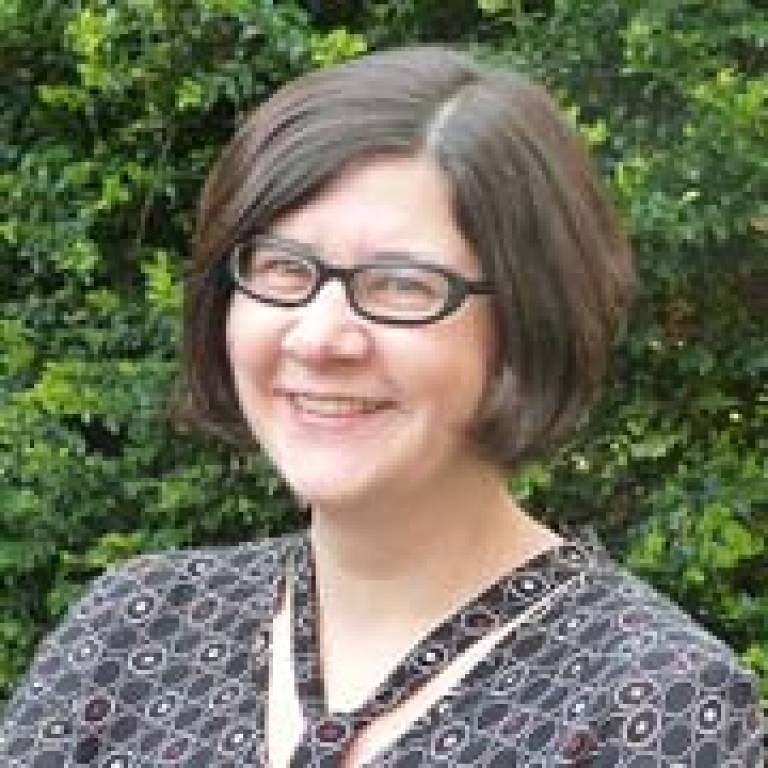Spotlight on Alison Brindle
8 June 2012
This week the spotlight is on Alison Brindle, UCL Neuroscience Communication and Events Officer.

What is your role and what does it involve?
I'm responsible for driving and enhancing UCL Neuroscience's internal
and external communication and engagement strategy and project managing all
major UCL Neuroscience events.
UCL Neuroscience is one of nine research domains within the School of Life and Medical Sciences and is the largest, with more than 450 principal investigators spread across many different UCL departments and institutes.
My job is very varied and involves maintaining the UCL Neuroscience website; sourcing and writing news articles; media liaison; organising the Annual Neuroscience Symposium and public engagement events; writing the weekly domain newsletter; advising staff and students in all aspects of public and patient engagement; and initiating public engagement partnerships.
How long have you been at UCL and what was your previous role?
I've been at UCL since September 2009, and before that I worked with the visitor services and events teams at the Wellcome Collection for a year. This was my first job after returning to university in 2007 and completing an MSc in Science Communication at Imperial College.
Prior to that, I spent ten years working primarily in the education and research sectors in the United States and Japan - most recently working as the Project Manager for a National Institute of Health-funded neurocognitive study at Southern Illinois University.
What working achievement or initiative are you most proud of?
I'm most proud of the public engagement activities that I've been involved in since I started working at UCL, specifically, the partnership which I helped initiate between UCL Neuroscience and the British Library. Together, we have organised two sold-out events, Do You Hear What I Hear? Your Brain and Sound, and The Performing Brain - A Moving Story.
These events brought together a number of neuroscientists, artists
and charity representatives to take part in interactive and entertaining
evening events. Not only have the events been positively reviewed by the
audience, but afterwards many of the neuroscientists told me how much they
enjoyed the experience, and some have even been inspired to go on and do other
engagement events afterwards.
To hear from scientists - who, at first, may be somewhat sceptical about being involved in public engagement activities - that they want to do more activities makes me feel really happy and proud!
What is your life like outside UCL?
I keep myself pretty busy and enjoy a variety of active (and sedentary) hobbies. I'm currently halfway through the Pilgrim's Trail hike from Winchester to Canterbury (I've had to take a break after undertaking a bodysurfing challenge with the Atlantic last summer. The sea won!)
I'm also a keen crafter and enjoy knitting, crocheting and sewing, but,
as I find patterns a headache and prefer to go free-style, I spend more time
unpicking projects than actually finishing anything!
I also thrive on getting out of the city as much as I can, and am always planning my next trip away.
 Close
Close

